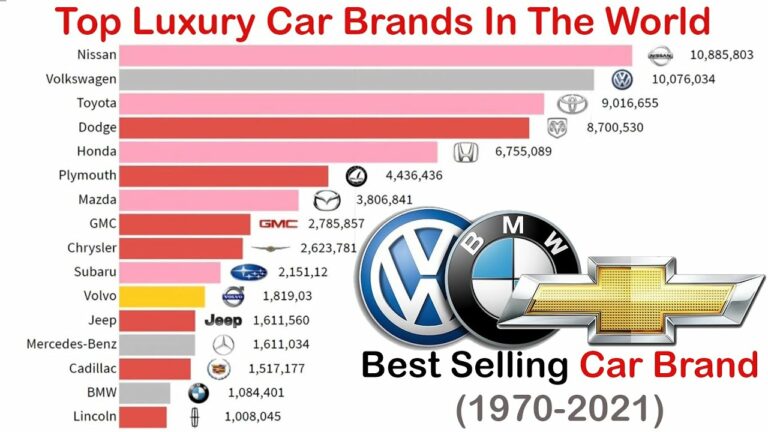Lawn Care Products Brands: Cultivating a Greener, Healthier Yard
Lawn Care Products Brands: Cultivating a Greener, Healthier Yard cars.truckstrend.com
The dream of a lush, vibrant lawn is a cornerstone of homeownership for many. It’s not just about aesthetics; a healthy lawn contributes to the environment by producing oxygen, filtering pollutants, and preventing soil erosion. However, achieving this verdant ideal often requires more than just regular mowing and watering. It demands a strategic approach, powered by the right tools and, crucially, the right products. This is where Lawn Care Products Brands come into play.
These brands are the innovators and manufacturers behind the fertilizers, weed killers, pest controls, grass seeds, and soil amendments that transform struggling patches into thriving green carpets. They represent a diverse ecosystem of companies, from multinational giants to specialized niche providers, all dedicated to helping homeowners and professionals maintain pristine outdoor spaces. Understanding these brands, their offerings, and their philosophies is the first step towards making informed choices that will nourish your lawn and bring your outdoor vision to life.
Lawn Care Products Brands: Cultivating a Greener, Healthier Yard
Understanding the Landscape: Types of Lawn Care Products and Their Brands
The vast array of lawn care products can seem daunting, but they generally fall into several key categories, each addressed by specific brands or product lines:
- Fertilizers: These are the nutrients that feed your lawn, promoting strong growth, vibrant color, and resilience.
- Synthetic Fertilizers: Offer precise nutrient ratios (N-P-K) and quick results. Brands like Scotts (Turf Builder line), Lesco, and Sunniland are dominant in this space, offering granular and liquid options tailored for different seasons (e.g., Scotts Winterguard, Scotts Starter Fertilizer).
- Organic Fertilizers: Derived from natural sources like compost, bone meal, or manure. They improve soil health over time and release nutrients slowly. Milorganite, Espoma, and Jonathan Green (Organic Lawn Food) are popular choices for environmentally conscious homeowners.
- Weed Killers (Herbicides): Designed to eliminate unwanted plants that compete with your grass for resources.
- Selective Herbicides: Target specific weeds (e.g., broadleaf weeds, crabgrass) without harming the lawn grass. Ortho (Weed B Gon), BioAdvanced (Weed & Feed), and Spectracide (Weed Stop) are leading brands. Many combine herbicides with fertilizers for a "weed and feed" application.
- Non-Selective Herbicides: Kill almost any plant they touch, including grass. Roundup (a Scotts brand) is the most famous example, used for clearing entire areas or spot-treating weeds in non-lawn areas.
- Pre-Emergent Herbicides: Prevent weed seeds from germinating. Often applied in early spring. Brands like Scotts (Halts) and Jonathan Green (Crabgrass & Weed Preventer) offer effective pre-emergent solutions.

- Pest Control (Insecticides & Fungicides): Protect your lawn from damaging insects and diseases.
- Insecticides: Target grubs, chinch bugs, armyworms, ants, and other lawn pests. Ortho (BugClear) and BioAdvanced (Complete Insect Killer) are widely recognized.
- Fungicides: Combat common lawn diseases like brown patch, dollar spot, and rust. BioAdvanced (Disease Control) and Scotts (DiseaseEx) provide solutions for these issues.

- Grass Seed: Essential for establishing new lawns, overseeding thinning areas, or repairing bare spots.
- Brands like Pennington Seed, Jonathan Green (Black Beauty line), and Scotts (Turf Builder Grass Seed) offer a wide variety of seed blends tailored for different climates, sun exposures (sun & shade, full sun), and grass types (Kentucky Bluegrass, Fescue, Ryegrass, Bermuda, Zoysia).
- Soil Amendments: Products that improve soil structure, pH balance, or nutrient availability.
- Lime, sulfur, compost, and topsoil are common amendments. While specific "brands" for raw materials like compost might vary regionally, companies like Espoma offer bagged soil amendments and conditioners designed to improve soil health.

Key Players in the Lawn Care Market: Top Brands Overview
The lawn care market is competitive, with several brands dominating various segments. Understanding their strengths can guide your purchasing decisions:
- Scotts Miracle-Gro: Arguably the undisputed leader in consumer lawn and garden products. Scotts offers an incredibly comprehensive range under its own name (e.g., Turf Builder fertilizers, grass seeds, spreaders) and through its acquired brands like Ortho (pest and weed control) and Roundup (non-selective herbicides). Their products are ubiquitous and known for their ease of use and widespread availability.
- Ortho (A Scotts Brand): While part of Scotts, Ortho maintains its distinct identity, primarily focusing on insect and weed control solutions for homeowners. Their Weed B Gon and BugClear lines are household names.
- BioAdvanced (formerly Bayer Advanced): A strong competitor, especially in the pest and disease control categories. BioAdvanced products are often praised for their efficacy in tackling tough insect infestations and fungal diseases, as well as offering effective weed and feed granular options.
- Spectracide (Part of United Industries/Spectrum Brands): Known for offering effective and often more budget-friendly solutions for weed and insect control. Spectracide products provide a good alternative for those looking for reliable performance without the premium price tag.
- Jonathan Green: This family-owned company has built a reputation for premium grass seed, particularly their "Black Beauty" varieties, known for their dark green color, drought tolerance, and disease resistance. They also offer a full line of fertilizers, soil conditioners, and organic solutions, often appealing to homeowners seeking higher-quality or more environmentally conscious options.
- Pennington Seed: A major player in the grass seed market, Pennington offers a vast selection of seed blends for various regions and conditions. They are known for their "Smart Seed" line, which boasts improved drought resistance and water conservation.
- Milorganite: A unique, all-natural, slow-release nitrogen fertilizer derived from Milwaukee’s wastewater treatment process. Milorganite is a favorite among those seeking organic solutions, valued for its iron content (which greens up lawns) and its slow, non-burning release of nutrients.
- Lesco (often associated with SiteOne Landscape Supply): While many Lesco products are geared towards landscaping professionals, their fertilizers, seeds, and pest controls are often available to homeowners. Lesco is known for its high-quality, professional-grade formulations that deliver consistent results.
Choosing the Right Brand: Important Considerations
Navigating the multitude of lawn care brands requires careful consideration of several factors:
- Product Efficacy and Reputation: Does the brand have a track record of producing effective products? Look for reviews, testimonials, and professional recommendations. Brands like Scotts and BioAdvanced have earned their reputation through consistent performance.
- Product Range and Specialization: Does the brand offer a comprehensive solution for your needs, or do they specialize in one area? If you need a full lawn care program (seed, fertilizer, weed control), a brand like Scotts offers a complete line. If you have a specific pest issue, a specialist like BioAdvanced might be your best bet.
- Ingredient Transparency and Safety: Are the ingredients clearly listed? Do they provide safety guidelines? Reputable brands prioritize consumer safety and environmental responsibility. Look for products that offer lower-impact solutions if environmental concerns are paramount.
- Customer Support and Resources: Does the brand offer helpful guides, application tips, or a customer service line? Brands that invest in educating their consumers (like Scotts with its extensive online resources) can be invaluable.
- Cost-Effectiveness: While budget is a factor, "cheapest" isn’t always "best." Consider the coverage area, concentration, and long-term results. A slightly more expensive product that requires fewer applications or delivers superior results can be more cost-effective in the long run.
- Environmental Impact: For many, the ecological footprint of lawn care products is a growing concern. Look for organic options, slow-release fertilizers that minimize runoff, and products with clear instructions for responsible use.
- Local Availability: Can you easily find the brand’s products at your local hardware store, garden center, or online retailer?
How to Navigate the Brand Landscape for Your Lawn
Achieving a beautiful lawn isn’t about blindly picking the most popular brand; it’s about making informed choices tailored to your lawn’s specific needs.
- Diagnose Your Lawn’s Issues: Before buying anything, understand what your lawn needs. Is it thinning? Are there specific weeds? Is the grass yellowing? Does it have bare spots? A soil test is highly recommended to understand nutrient deficiencies and pH levels.
- Research Specific Products, Not Just Brands: Once you know your problem, research products designed to address it. For example, if you have crabgrass, look for pre-emergent crabgrass killers from various brands, comparing their active ingredients and application methods.
- Read Reviews and Compare Formulations: Online reviews and expert guides can offer valuable insights. Pay attention to feedback regarding ease of use, effectiveness, and any reported issues. Compare the N-P-K ratios for fertilizers or the active ingredients for herbicides across brands.
- Consider a Holistic Approach: While a brand might excel in one area (e.g., grass seed), another might be better for pest control. Don’t feel obligated to stick to one brand for all your needs. A customized approach, using the best product for each specific task, often yields the best results.
- Start Small and Test: If you’re unsure about a new product or brand, consider buying a smaller size to test its effectiveness on a limited area before committing to a larger purchase.
- Always Read the Label: This cannot be stressed enough. Product labels contain crucial information about application rates, timing, safety precautions, and specific instructions for different grass types. Ignoring these can lead to wasted product, damaged lawns, or environmental harm.
Challenges and Solutions in Brand Selection
- Overwhelm of Choices: The sheer volume of products and brands can be daunting.
- Solution: Focus on diagnosing your specific lawn problem first. This narrows down the product categories and, subsequently, the relevant brands.
- Conflicting Information: You might find conflicting advice online or from different sources.
- Solution: Stick to reputable sources like university extension services, established garden centers, and the brands’ own scientific data. Prioritize product labels as the ultimate guide.
- Budget Constraints: Premium brands can be expensive.
- Solution: Look for value. A slightly more expensive product that covers a larger area or requires fewer applications can be more economical. Also, consider store brands or brands like Spectracide for good performance at a lower price point.
- Environmental Concerns: Worry about chemicals and their impact.
- Solution: Explore organic lawn care brands like Milorganite and Espoma. Look for products labeled "eco-friendly" or "natural." Follow all application instructions meticulously to minimize environmental impact.
- Product Availability: Some niche or professional brands might be harder to find.
- Solution: Check online retailers like Amazon, Chewy, or the brand’s direct website. For professional-grade products, look for local landscape supply stores.
Practical Advice and Actionable Insights
- Don’t be Brand Loyal for Loyalty’s Sake: Your lawn’s needs should dictate your product choice, not allegiance to a single brand.
- Understand Your Soil and Grass Type: These are fundamental to choosing the right fertilizers and seeds. A warm-season grass (like Bermuda) has different needs than a cool-season grass (like Fescue).
- Seasonality Matters: Lawn care is highly seasonal. Fertilizers, weed killers, and pest controls are formulated for specific times of the year. Always apply products according to the recommended seasonal schedule.
- Calibrate Your Spreader: For granular products, ensure your spreader is calibrated correctly according to the product label. This prevents over-application (which can burn your lawn) or under-application (which makes the product ineffective).
- Consider Professional Advice: For severe or persistent lawn issues, consulting a local lawn care professional or an agricultural extension office can provide tailored advice and solutions.
Price Table: Representative Examples from Leading Lawn Care Brands
Please note: Prices are highly variable based on retailer, region, product size, and sales. These are typical ranges for common product sizes or coverage areas (e.g., for a medium-sized lawn of 5,000-15,000 sq ft).
| Product Type | Brand | Example Product | Typical Price Range (for common size/coverage) | Notes |
|---|---|---|---|---|
| Fertilizer | Scotts | Turf Builder Winterguard | $30 – $60 (5,000 – 15,000 sq ft) | Granular, widely available, seasonal formulation. |
| Jonathan Green | Winter Survival Fertilizer | $35 – $70 (5,000 – 15,000 sq ft) | Premium granular, often higher NPK for specific needs. | |
| Milorganite | 0-0-0 (Slow Release) | $20 – $35 (2,500 sq ft bag) | Organic, lower NPK, excellent for soil health and greening. | |
| Lesco | Starter Fertilizer (18-24-12) | $40 – $80 (50 lb bag, 10,000-20,000 sq ft) | Professional grade, often higher coverage per bag. | |
| Weed Killer | Ortho | Weed B Gon MAX (Concentrate) | $15 – $30 (32 oz concentrate) | Selective, kills broadleaf weeds, mix with water. |
| BioAdvanced | All-In-One Weed & Feed | $25 – $50 (5,000 sq ft granular) | Combines fertilizer with broadleaf and crabgrass killer. | |
| Spectracide | Weed Stop for Lawns (Concentrate) | $10 – $25 (32 oz concentrate) | Budget-friendly option for broadleaf and crabgrass. | |
| Roundup | Weed & Grass Killer (Ready-to-Use) | $20 – $40 (1-gallon spray bottle) | Non-selective, kills all vegetation, use with extreme caution. | |
| Grass Seed | Pennington | Smart Seed (Sun & Shade) | $25 – $50 (3-7 lb bag) | Popular blend for various conditions, good germination. |
| Jonathan Green | Black Beauty Ultra | $40 – $75 (5-7 lb bag) | Premium, known for dark green color and drought tolerance. | |
| Scotts | Turf Builder Grass Seed (Sun & Shade) | $30 – $60 (3-7 lb bag) | Often includes a germination-enhancing coating. | |
| Pest Control | BioAdvanced | Complete Insect Killer (Concentrate) | $20 – $40 (32 oz concentrate) | Kills surface and subsurface insects, mix with water. |
| Ortho | BugClear Insect Killer for Lawns | $15 – $30 (32 oz concentrate) | Broad spectrum insect control. | |
| Soil Amendment | Espoma | Organic Lawn Food (e.g., Bio-tone) | $30 – $50 (25 lb bag) | Organic fertilizer and soil conditioner. |
Frequently Asked Questions (FAQ) about Lawn Care Products Brands
Q1: Is it better to stick to one brand for all my lawn care needs?
A1: Not necessarily. While some brands like Scotts offer comprehensive systems, it’s often more effective to select the best product for each specific need, even if it comes from different brands. For example, you might use a Jonathan Green seed, a Milorganite fertilizer, and an Ortho weed killer.
Q2: Are organic lawn care brands as effective as synthetic ones?
A2: Organic products work differently. They focus on improving soil health over time, which then nourishes the grass. Synthetic products often provide quicker, more immediate nutrient boosts. For long-term soil health and sustainable growth, organic brands are excellent. For quick fixes or severe deficiencies, synthetics might be faster. Many homeowners combine both approaches.
Q3: How do I know which brand’s product is right for my specific lawn problem?
A3: Start by accurately diagnosing your lawn’s issue (e.g., broadleaf weeds, grubs, bare spots, nutrient deficiency). Then, research products specifically designed for that problem. Read product descriptions, active ingredients, and reviews across several brands before making a choice. Consulting your local garden center or extension office can also provide tailored advice.
Q4: Are more expensive brands always better?
A4: Not always. While premium brands often use higher-quality ingredients or more advanced formulations, a mid-range or even budget-friendly brand might be perfectly effective for common issues. Consider factors like coverage area, concentration, and user reviews alongside price. Sometimes, you’re paying for brand recognition or specialized features you might not need.
Q5: Where can I find reliable reviews for lawn care products brands?
A5: Look for reviews on reputable retailer websites (Amazon, Home Depot, Lowe’s), independent lawn care forums, gardening blogs, and consumer product review sites. Also, consider professional landscaping forums where professionals discuss product performance.
Q6: Do professional lawn care companies use different brands than what’s available to consumers?
A6: Often, yes. Professional lawn care companies frequently use concentrated, commercial-grade products from brands like Lesco, Lebanon Turf, or PBI-Gordon, which may not be readily available to the average consumer. These products often come in larger quantities and require specific training or licensing for application. However, many consumer brands also offer professional lines or very similar formulations.
Conclusion
The journey to a beautiful lawn is an ongoing process that benefits immensely from informed product choices. Understanding the landscape of Lawn Care Products Brands empowers you to select the right tools for every challenge and opportunity your lawn presents. By considering your lawn’s specific needs, researching product efficacy, understanding brand specializations, and applying products responsibly, you can transform your outdoor space into a vibrant, healthy oasis. A well-maintained lawn isn’t just a testament to diligent care; it’s a living, breathing extension of your home, contributing to both its beauty and its value.






